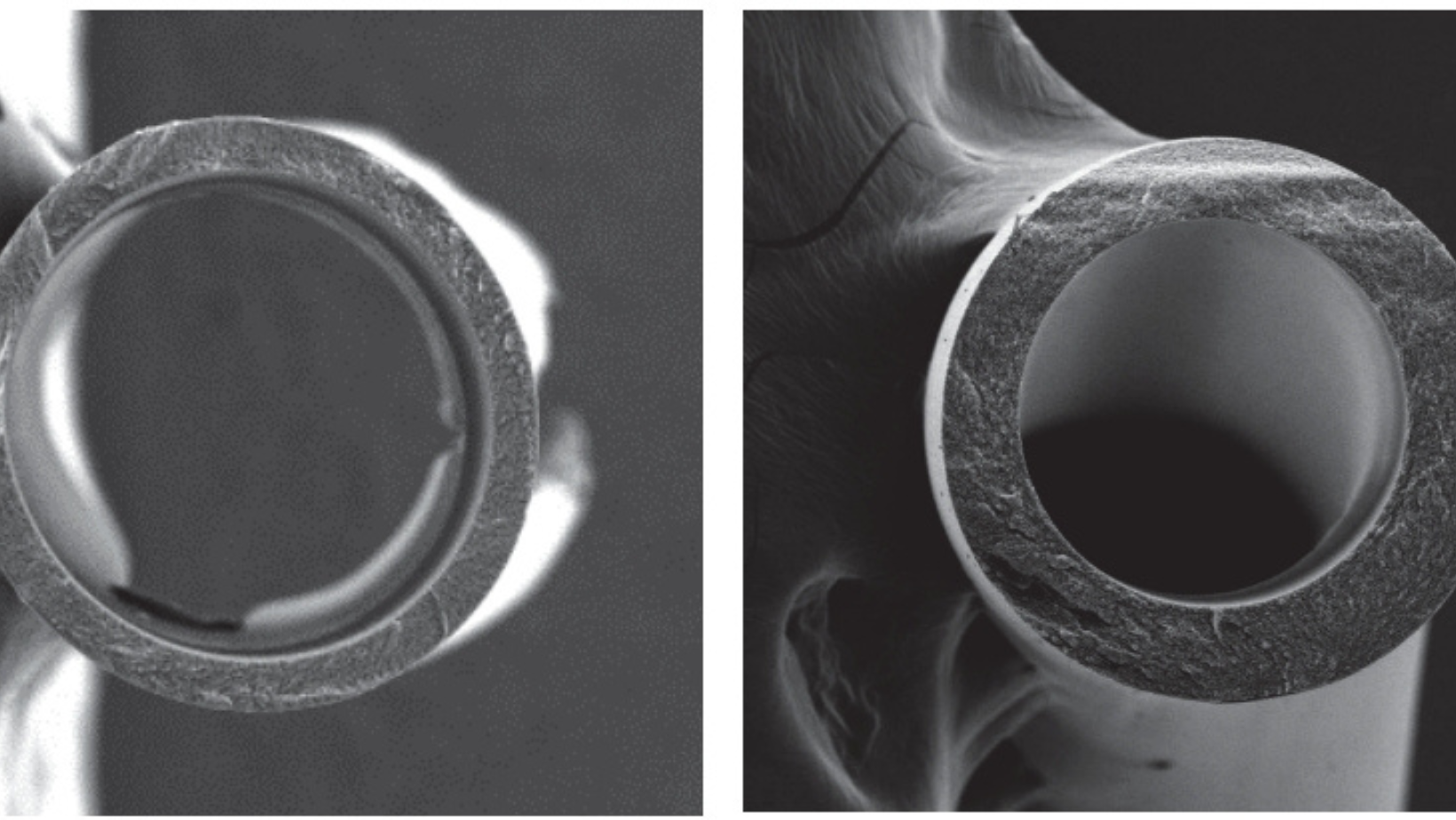
Breaking Azeotropes with Confidence
Traditional methods of separating water from industrial solvents are energy-intensive and have physical limitations on purity. This is exemplified by distillation, the most common form of separation technology. Azeotropes, high boiling points, and solvent instability at elevated temperatures often necessitate the use of costly, energy-intensive workarounds, such as ternary distillation, for chemical engineers.
Pervaporation, a membrane-based technique, has become a compelling alternative. Rather than boiling and condensing, it draws water through a selective membrane, evaporates it under vacuum, and collects it as a vapor.
The result: lower energy use, higher purity products, and a pathway around azeotropes.
The PBI Advantage in Harsh Solvent Systems
Membrane integrity is considerably important in solvent dehydration systems. Many polymers used in pervaporation applications degrade when exposed to solvents, hot water, or aggressive organic compounds. Swelling, plasticization, or outright dissolution will compromise separation performance or render the membrane incompatible with the solvent chemistry.
Celazole® PBI, with its high glass transition temperature and chemically robust structure, addresses these challenges through inherent thermal and solvent resistance. Its strong molecular backbone and its fully aromatic structure enable long-term stability in environments where most other polymers fail.
Technical advantages include:
- Thermal strength: PBI maintains dimensional and mechanical stability due to its 427°C glass transition temperature, preventing compaction under elevated operating temperatures.
- Solvent resistance: PBI resists degradation in aggressive solvents, including ethanol, acetone, hydrocarbons, and alcohols, thereby preserving its barrier function and selectivity.
- Composite membrane durability: Can be used as a 100% PBI asymmetric hollow fiber membrane or as a dual-layer asymmetric membrane. PBI is highly compatible with P84 and can be used as a support or selective layer in dual-layer membranes.

From Ethanol to Ethylene Glycol
PBI-based membranes have demonstrated efficacy across a wide range of solvents. In fuel ethanol dehydration, pervaporation circumvents the azeotrope experienced with distillation. Due to their high affinity for water, hydrophilic PBI membranes can dry ethanol to a purity of greater than 99.5%.
Even in the dehydration of ethylene glycol, a common solvent and coolant, PBI membranes exhibit excellent stability and performance. When exposed to this viscous, high-boiling mixture, traditional membranes often suffer reduced selectivity or flux loss. PBI, by contrast, withstands these demands without compromising on either chemical or mechanical properties.
Engineering for Selectivity and Flux
Achieving optimal membrane performance in pervaporation requires a tradeoff between flux and selectivity. A dense membrane limits solvent throughput, while one that is too porous loses the ability to discriminate effectively between water and organic molecules. PBI hollow fiber membranes can be tailored for different separations by controlling the porosity of the support layer and the characteristics of the separation layer.
Researchers have explored thin-film composite configurations with PBI as the selective layer, applying post-treatment strategies to fine-tune the membrane’s diffusion profile. These methods enable precise control over transport properties while preserving chemical stability.
Engineering enhancements include:
- Coating and thickness control: By adjusting the thickness of selective layers during casting or spinning, membranes can be optimized for specific flux and rejection targets.
- Thermal annealing: The heat treatment of PBI films tightens the polymer packing, enhancing selectivity without severely compromising permeability.
- Chemical crosslinking: Crosslinking agents can be used to alter membrane characteristics. For example, Dibromo-xylene (DBX) reduces segmental motion and swelling, improving solvent resistance and membrane flexibility.

Raising the Bar in Solvent Dehydration
Pushing performance boundaries in solvent dehydration requires more than chemical resistance; it demands membranes that consistently deliver high flux and selectivity over time at high temperatures. PBI membranes meet that challenge, maintaining stability and performance in aggressive operating conditions where traditional materials degrade or fail.
PBI Performance offers a high-performance PBI (polybenzimidazole) in solution form that can be used as a key material in the manufacture of advanced membranes, including those used in applications such as organic chemical separations, purification, and dehydration. While we do not sell the finished membranes, our PBI solution provides the critical polymer foundation that enables manufacturers to create durable, chemically resistant, and high-temperature-capable membranes tailored to their specific needs.
Contact PBI Performance Products to request a sample, discuss technical specifications, or collaborate on membrane development tailored to your process or find a commercial channel to deliver a PBI product for your separation needs.




